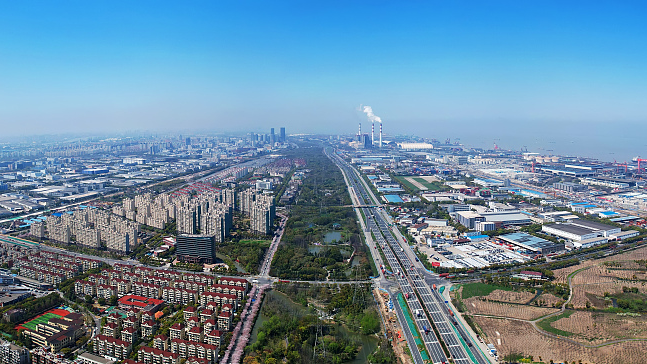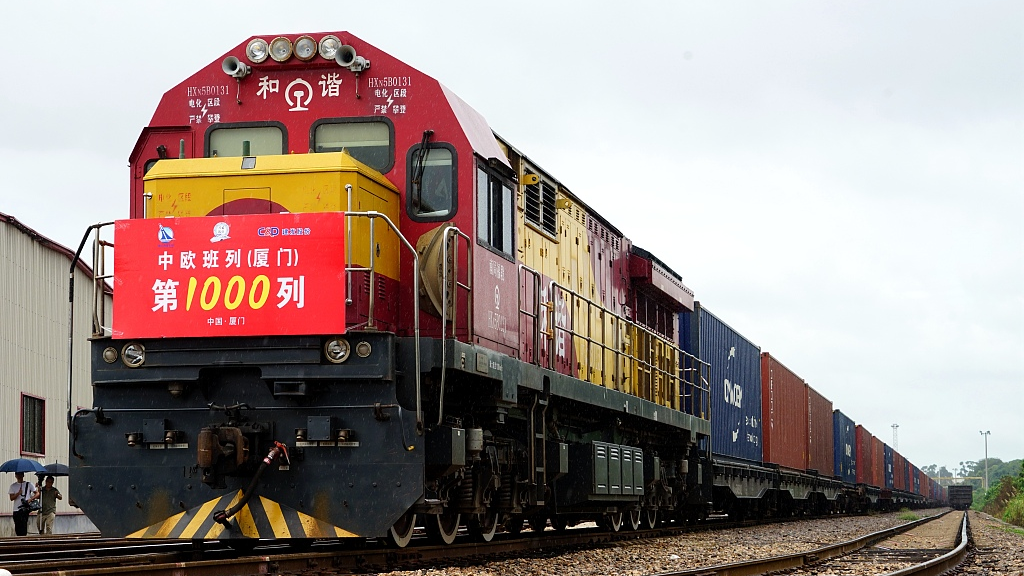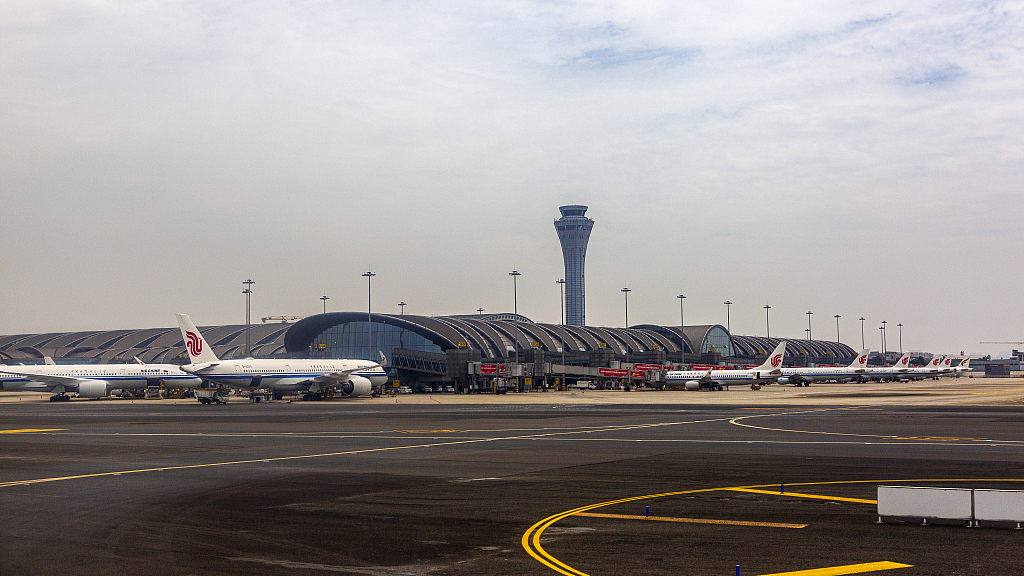
China (Shanghai) Pilot Free Trade Zone, April 2, 2023. /CFP
China (Shanghai) Pilot Free Trade Zone, April 2, 2023. /CFP
In October 2022, U.S. specialty chemicals giant Albemarle Corp. invested $200 million to set up a new company near the Port of Qinzhou in the Guangxi Pilot Free Trade Zone (FTZ) after the acquisition of a local, new energy material manufacturer in south China's Guangxi Zhuang Autonomous Region.
The location has become one of the major reasons for the investment, according to Zou Ling, a production director with the new company named Guangxi Albemarle Lithium Company Limited.
Facilitated by an integrated transportation system connecting the railway and the sea in the FTZ, Zou said the company can export its products to Vietnam, Thailand and Association of Southeast Asian Nations (ASEAN) countries without changing containers at the port, which greatly assists the company in expanding into overseas markets.
The FTZ also strongly supports enterprises in taxation, investment and talent resources, Zou said.
"Within a day, it helped us settle the accommodation for employees, resolving the issue," said Zou.
In the last two months of 2022, the new company produced 2,022 tonnes of lithium hydroxide, realizing an industrial output of 1 billion yuan (about $140 million).
Contributors to foreign trade
Since the establishment of the first pilot FTZ in Shanghai in 2013, China has so far set up 21 FTZs and the Hainan Free Trade Port across the country, injecting strong momentum into the regional and global economy.
The FTZs have also played a crucial role in attracting foreign investment and stabilizing foreign trade over the past decade.
According to the Ministry of Commerce, the total import and export volume of the 21 FTZs in 2022 increased by 14.5 percent year on year to 7.5 trillion yuan, accounting for 17.8 percent of the country's total, and the utilized foreign investment exceeded 220 billion yuan, making up 18.1 percent of the total.
In the first half of 2023, the 21 FTZs continued to see steady growth in their foreign investment.
The foreign investment utilization in the 21 FTZs reached 129.66 billion yuan, a year-on-year increase of 8.2 percent, among which the high-tech industries saw a year-on-year increase of 21.2 percent, said Yang Tao, director general of the Comprehensive Department of the Ministry of Commerce.
"Overall, the FTZs, which cumulatively cover less than four-thousandths of the country's land area, attracted 18.5 percent of the country's foreign investment," said Yang.
Opening up cross-border logistics channels

The 1,000th China-Europe freight train departs from Xiamen City, east China's Fujian Province, June 2, 2021. /CFP
The 1,000th China-Europe freight train departs from Xiamen City, east China's Fujian Province, June 2, 2021. /CFP
On Wednesday, a China-Europe freight train, loaded with 110 twenty-foot equivalent units (TEUs) of goods, such as diapers and diesel generator sets, departed from Xiamen in the Fujian FTZ.
Four days later, the goods will be exported to Kazakhstan and Uzbekistan through the Khorgos Gateway, taking the train's overall export volume to over 100,000 TEUs.
Since its operation in August 2015, a total of 1,213 export trips have been made by the China-Europe (Xiamen) freight train, carrying 100,009 TEUs of goods, including electronics, machinery, daily necessities, biomedicine, and new energy vehicles, with a value of over $4.5 billion.
So far, it has launched three freight routes linking China with Europe, Asia and Russia, forming seamless international logistics channels which speed up transportation from Xiamen to neighboring countries, such as Thailand, Vietnam and Indonesia, from about 30 days to within 20 days.

The Chengdu Shuangliu International Airport in Chengdu, southwest China's Sichuan Province, July 15, 2023. /CFP
The Chengdu Shuangliu International Airport in Chengdu, southwest China's Sichuan Province, July 15, 2023. /CFP
In southeast China's Sichuan FTZ, the Chengdu Shuangliu International Airport has opened 131 air routes to overseas countries and regions by 2022, and the Chengdu International Railway Port has connected to 25 domestic cities and 69 overseas.
In 2022 alone, the China-Europe freight trains from Chengdu and its neighboring Chongqing Municipality made more than 5,000 trips, cumulatively more than 22,000 trips, accounting for 30 percent of the total number of China-Europe freight trains in the country.
Taking advantage of its air, railway and road transportation, the Sichuan FTZ has been playing a crucial role in serving as an international hub that connects Europe, ASEAN, Japan, South Korea, Russia and Mongolia.
Diversified development goals
China's pilot FTZs cover the eastern, central and western regions with different strategic positioning and development goals.
For instance, the Guangdong FTZ supports economic integration and transit with Hong Kong and Macao, while the Fujian FTZ focuses on promoting trade with Taiwan.
Yunnan has long shared borders with Myanmar, Laos and Vietnam, making it a natural trading and access point between China and the ASEAN nations.
"The Yunnan FTZ will utilize its proximity to ASEAN countries to explore new cross-border cooperation models," said Lin Zhigang, an official with the Kunming zone of the Yunnan FTZ.
Based on their rich experience in foreign trade, the Hainan Free Trade Port and the FTZs in Beijing, Shanghai, Tianjin and Guangdong and Fujian provinces have been chosen to conduct trials to align with high-standard international economic and trade rules, including the Comprehensive and Progressive Agreement for Trans-Pacific Partnership and the Digital Economy Partnership Agreement.
China will continue to support FTZs to explore differentiated development in accordance with their unique positioning and characteristics and sum up and promote their innovation practices in a timely manner, said Shu Jueting, spokesperson for the Ministry of Commerce.
(With input from Xinhua)